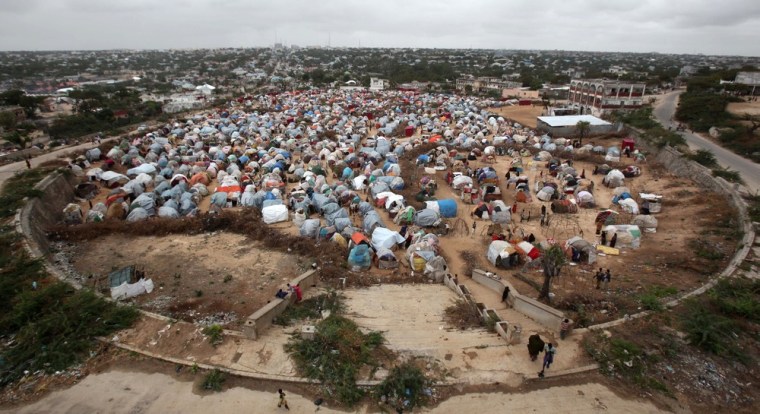A new report by the Spanish nonprofit DARA estimates that without swift action climate change and carbon pollution could claim 100 million lives by the year 2030. The 342-page report—the second edition of DARA's Climate Vulnerability Monitor—estimates that 5 million people already die per year due to the consequences of carbon pollution, such as smoke inhalation, hunger, and diarrhea. That annual death toll is estimated to rise to 6 million within the next two decades.
"In worst cases, not solving climate change could render large areas of the planet unsuitable for human existence outdoors," write the authors of the report. Though nobody will be spared the consequences of a warming globe, the report argues that developing countries will suffer the most. "Lacking any responsibility for climate change," it says, "the low-emission country group nevertheless experiences approximately 40 percent of all its economic losses, and over 80 percent of all climate change-related mortality."
The Climate Vulnerability Monitor was commissioned by the Climate Vulnerable Forum, an international organization of 20 countries who say their citizens bear the brunt of climate change's consequences. The chair of the Forum is Bangladesh, which the report says "has committed never to exceed the average per capita emissions of the developing countries." The report's advisory panel includes prominent United Nations officials, the former presidents of Chile and Costa Rica, and Jeffrey Sachs, the director of Columbia University's Earth Institute.
The report urges a swift response to climate change, arguing that long-term security and economics demand a move away from the carbon economy. "Even for the skeptically minded, the argument for switching to safer, less damaging energy sources can be justified on the account of the heavy costs of the prevailing carbon-intensive means," reads the report. Its authors project that the United States "will lose more than 2 percent of its GDP by 2030" due in large part to the consequences of climate change.
In response, the report suggests a kitchen sink approach: firm commitments to earlier environmental treaties and a variety of energy alternatives, "such as wind, solar, tidal or geothermal power." Concerted action is needed, the report's authors write, from policy makers, investors, and private citizens. "Despite the complexity of the topic," they write, "ignorance is no excuse for inaction, and indifference can be tied to complicity. ... Civil society groups, communicators and people of all kinds in positions of public influence or authority within their communities ... should find no further obstacles in taking a stand on climate change."
